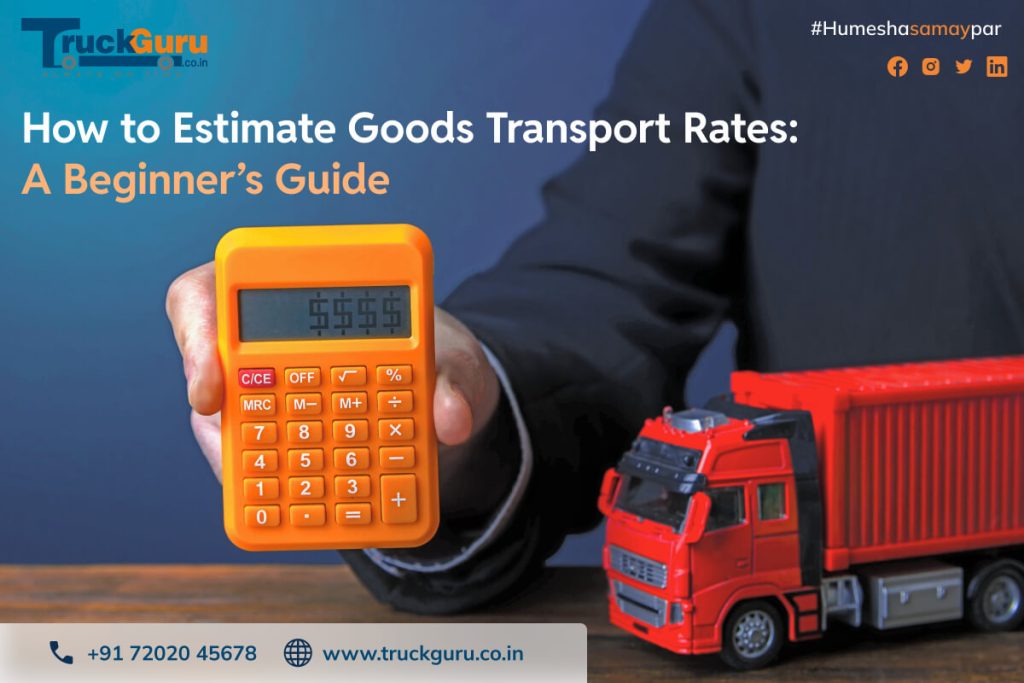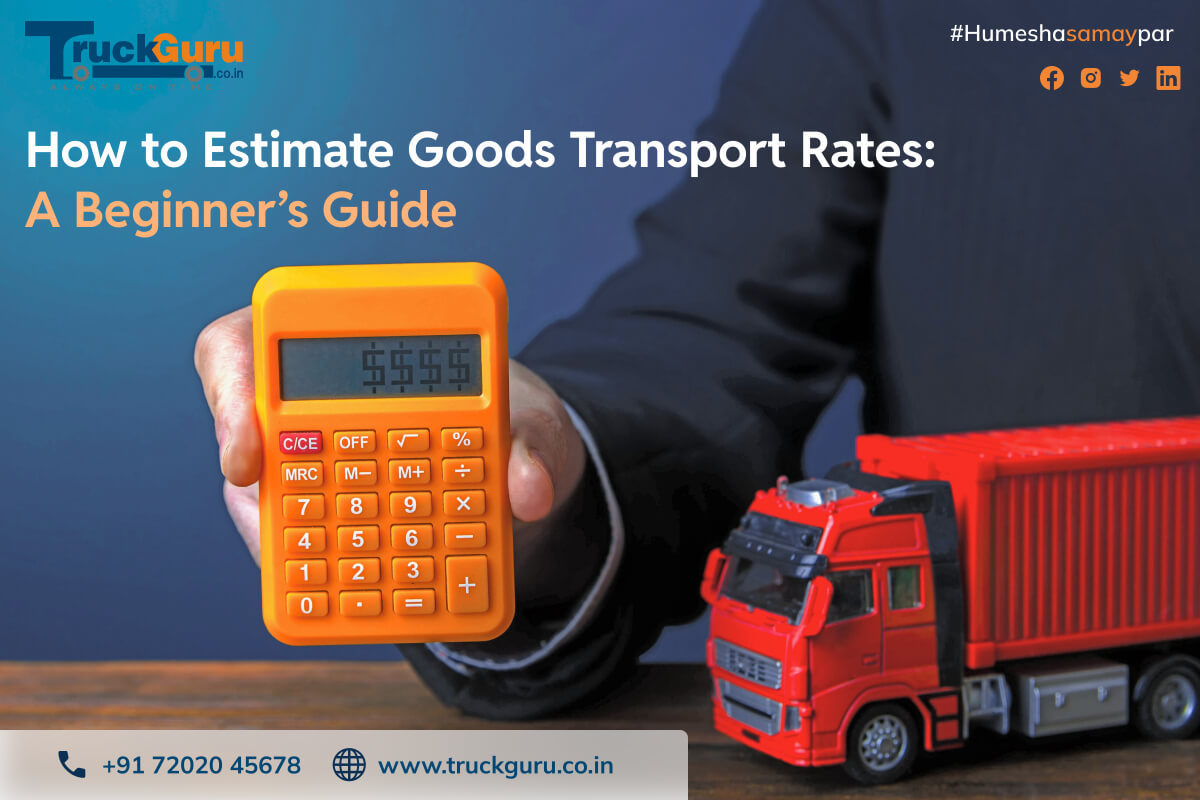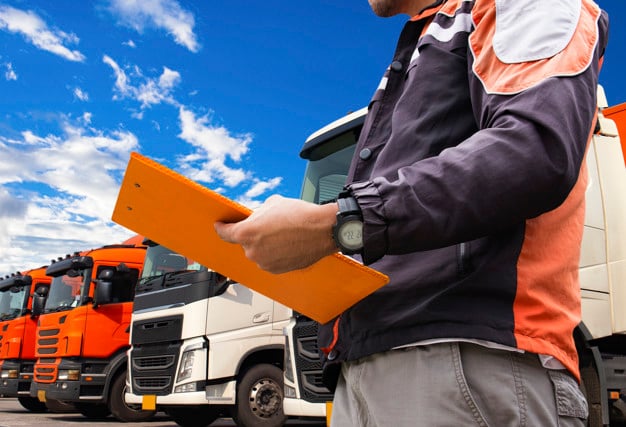
Trucks carry more than 60% of India’s freight, making road transport the lifeline of our economy. But here’s something interesting: India’s logistics cost was 7.97% of GDP in 2023-24, showing big improvements from earlier estimates of 13-14%.
Despite this progress, anyone shipping goods knows that transport cost per km in India by region/state changes dramatically.
The shipping rates from Delhi to Mumbai are higher per KM than from Lucknow to Ahmedabad. Metro cities are more expensive. Do you know why?
The reason is simple- regional factors. Every state has different fuel rates, toll charges, road conditions, and local rules, which affect the overall cost of shipping.
Overview: The Cost of Truck Transport in India
Right now, the truck transport cost variation in India sits between ₹15 and ₹85 per kilometer. That’s a huge range! The actual cost is based on the truck size you choose. Also, the total distance, fuel rates, and road conditions also impact the transport cost.
Local deliveries within a city cost less because there are no toll plazas or interstate permits to worry about. But when you cross state borders, costs jump up.
Here’s a real example: sending goods on a 15-tonne truck from Delhi to Chennai costs ₹96.3 per km, while Delhi to Kolkata costs only ₹42.9 per km—that’s more than double for the same truck type!
This shows how much transport costs per km in India by region can differ based on your exact route.
Estimated Truck Transportation Charges in India (Per Km Cost)
| Truck Type | Capacity | Average Cost Per Km | Best Use Case |
|---|---|---|---|
| Tata Ace / Mini Trucks | 0.75 – 1.5 Tons | ₹12 – ₹20 | Local deliveries |
| Small Trucks | 1.5 – 3 Tons | ₹20 – ₹30 | Intra-city transport |
| Medium Trucks (LCV) | 4 – 7 Tons | ₹30 – ₹50 | Regional distribution |
| Large Trucks (HCV) | 10 – 18 Tons | ₹40 – ₹65 | Interstate transport |
| Heavy-Duty Trucks | 20+ Tons | ₹50 – ₹85 | Long-haul industrial freight |
Note: These rates change based on your specific route, current fuel prices, toll charges, and how much demand there is for trucks.
Major Factors Affecting Truck Freight Cost Across States
1. Fuel Price Differences Across States
Here’s something that directly hits your wallet: diesel in Delhi costs ₹87.62 per litre, but in Trivandrum it’s ₹96.13—that’s almost ₹9 more! This is exactly how fuel price differences across states affect transport rates in India.
2. Toll and Permit Fees Variation
Some states love their toll plazas, while others have very few. Look at this: Uttar Pradesh collected ₹7,060 crore in tolls, and Maharashtra gathered ₹5,115 crore. This makes interstate trucking cost differences in India quite significant, even before your truck moves an inch.
3. Terrain and Road Conditions
Try sending a truck through the hills of Himachal or Uttarakhand—you’ll pay 20-25% more than sending it across the plains of Punjab. Mountain roads increase the fuel consumption climbing up and slowing down. Trucks can’t maintain good speeds on bad roads with potholes and end up using more fuel.
4. Traffic & Congestion Levels
Mumbai, Delhi, and Bangalore have terrible traffic. The truck that normally gives an average of 5 km per litre on highways drops to just 2-3 km per litre in city traffic. This is why metro areas cost more.
5. Driver Wages & Operational Expenses
Mumbai or Bangalore drivers earn nearly ₹25,000-₹35,000 per month. That same driver in a smaller town earns ₹15,000-₹20,000. Higher wages, costly repairs, and others—all add to state-wise road transport charges in India.
6. Demand-Supply Dynamics
Routes with high demand or empty return trips cost more. If trucks often return empty from a city, transporters charge extra on the outbound trip to cover losses. That’s basic business—no cargo coming back means higher charges going in.
Metro vs. Non-Metro Transport Costs
- Increasing Costs
Big cities charge a lot more for parking, warehouse space, and waiting time. These costs—often 30-40% higher than smaller towns—get added to your transport bill whether you like it or not.
- Entry Restrictions
Most metros don’t allow trucks during day hours. So trucks wait around wasting time and fuel, or take longer routes to deliver your goods. Either way, you pay for it.
- Traffic Congestion
Stop-and-go traffic in metros eats up fuel like crazy. Your truck spends more time idling and crawling than actually moving, which directly increases costs per kilometer.
- Labor Costs
Workers who load and unload trucks in big cities charge premium rates. Organized warehouses also have higher handling charges compared to simple loading points in smaller places.
Real Example: Sending goods from Mumbai to Pune (only 150 km) often costs more per kilometer than Ahmedabad to Rajkot (215 km). Why? Mumbai has crazy traffic, multiple toll booths, and city delays. The Ahmedabad-Rajkot route is mostly smooth highway driving. This clearly shows why trucking charges are higher in metro cities.
State-Wise and Interstate Cost Differences
- Different Permits Needed
Even though e-way bills exist for goods above ₹50,000, each state still wants its own paperwork and permits. These create both costs and delays that add up.
- Varying State Taxes
GST helped a lot, but some states still charge extra infrastructure fees or local taxes. Your transport cost changes depending on which states you’re passing through.
- Road Quality Matters
States with good highways, like Gujarat, help trucks maintain speed and save fuel. In states with poor road conditions, trucks go slowly and burn more fuel. This is why freight rates differ by state in India.
Example: Tamil Nadu and Maharashtra have many toll plazas. Also, the costly diesel price adds to the transport costs. Gujarat has better-maintained roads and reasonable fuel prices. This keeps the cost fair for equal distances.
Impact of Government Regulations and Policies
A recent NCAER report revealed that India’s logistics cost has dropped to 7.97% of GDP in FY 2023-24, which is a huge achievement compared to the old 13-14% figure everyone used to quote. Several government programs made this happen:
- GST and E-Way Bill System
GST removed most check-posts and made paperwork simple through e-way bills. Now trucks move faster across states, cutting both time and fuel waste. This helped reduce interstate trucking cost differences in India significantly.
- FASTag Implementation
No more cash collection at toll booths means no more long waiting lines. This saves fuel cost as well as time.
- Bharatmala Pariyojana
By December 2024, projects covering 19,201 km have been built under Bharatmala, creating better freight corridors across India. The goal is ambitious—bringing logistics costs down from 14-18% of GDP to 8% by 2030.
- Weight and Load Standards
Having the same rules for truck loads across all states helps, though some places enforce them better than others.
Real Success Stories: How TruckGuru Helped
Case Study 1: FMCG Company – Multi-State Distribution
Problem: A mid-sized FMCG company kept getting surprise bills when shipping from Gujarat to 8 different states. They never knew the final cost until after delivery.
Challenges: Different states had different toll rates and permit fees. The company couldn’t predict state-wise road transport charges in India, which messed up their budgets and delayed shipments.
TruckGuru Solution: We gave them clear quotes for each state before booking, found routes that avoided unnecessary tolls, and handled all permits digitally so nothing got missed.
Outcome: Their transport costs reduced by 18%, and 95% of their deliveries are completed on time.
Case Study 2: E-Commerce Startup – Metro Delivery Optimization
Problem: An e-commerce startup was paying high charges for Mumbai and Bangalore deliveries. High costs were eating their profits.
Challenges: They didn’t understand why trucking charges are higher in metro cities.
TruckGuru Solution: We connected them with experienced metro transporters and scheduled deliveries during off-peak hours to avoid traffic..
Outcome: Metro delivery costs fell by 22% while they kept their same-day delivery promise. The business became profitable in those cities.
How TruckGuru Helps You Get Better Rates
- Real-Time Quotes: We check current fuel prices, toll rates, distance, and road conditions to give you accurate prices.
- Smart Route Selection: Our system finds routes that balance cost and speed. We figure out the best route considering all cost factors.
- Complete Transparency: Every quote breaks down costs clearly: base freight charge, fuel costs, toll fees, and any other charges.
- Transporters Everywhere: We work with verified truck operators in every major city and town who understand the local transport cost per km in India by region
- Paperwork Handled: E-way bills, state permits, documentation—we take care of it all. You don’t have to worry about compliance or getting stopped at borders.
- 24/7 Customer Support: Our support team helps you understand the truck transport cost variation in India. You can call us anytime..
Conclusion
Transport charges across India vary because of fuel price differences, toll charges, terrain, traffic jams, driver wages, and state rules. Each region has its own cost pressures.
Government programs like GST, FASTag, and Bharatmala are making things better. Roads are improving, paperwork is simpler, and trucks move faster. But regional differences still exist and probably always will. The smart move is working with logistics partners who know these differences and can guide you to the best options.
Want a State-Wise Transport Quote? Let TruckGuru help. Call +917202045678 for more info!
Frequently Asked Questions
1. What factors affect truck freight cost in India?
Main factors affecting truck freight cost in India include fuel prices, toll charges, distance, terrain (hills or plains), driver wages, how much demand there is for trucks, vehicle type, and different state rules.
2. How do fuel price differences affect transport rates?
Diesel prices change by ₹8-10 per litre between states. Since trucks need 200-250 litres for long trips, fuel price differences across states affect transport rates in India by adding ₹1,600-₹2,500 to each journey.
3. Why are trucking charges higher in metro cities?
Trucking rates in metro vs non-metro India differ because metros have heavy traffic, truck entry restrictions, expensive parking, higher labour costs, and poor fuel efficiency in stop-go conditions.
4. How can I reduce interstate transport costs?
Pick routes with fewer tolls, combine multiple shipments into one truck, book when demand is lower, and partner with platforms like TruckGuru for better rates.
5. Does TruckGuru offer state-wise transport quotes?
Yes! TruckGuru gives you accurate state-wise road transport charges in India by considering fuel costs, tolls, road conditions, and local market rates.



